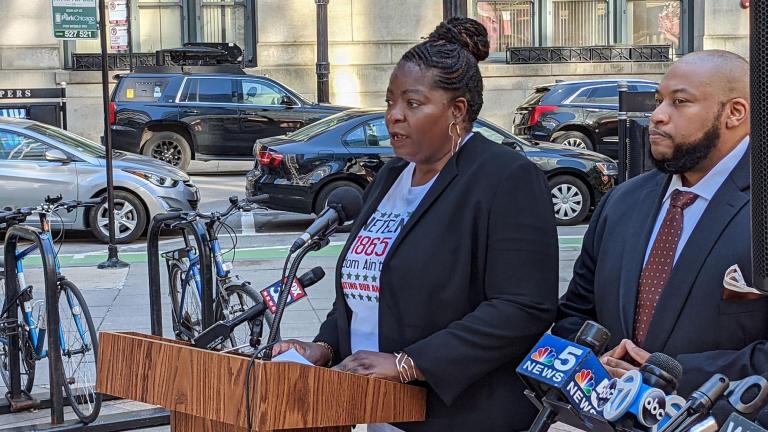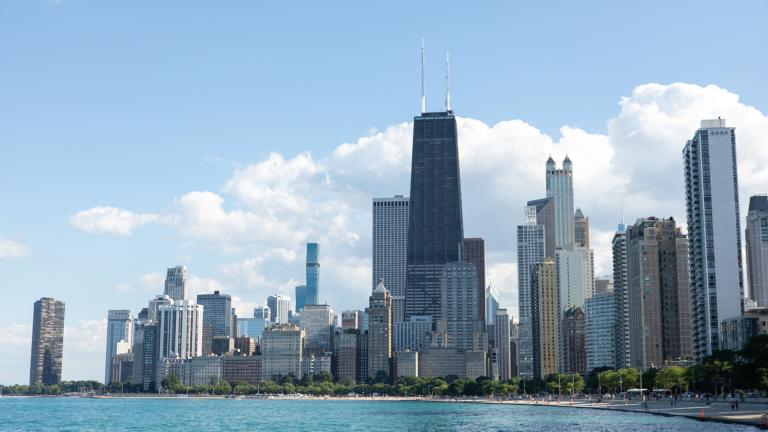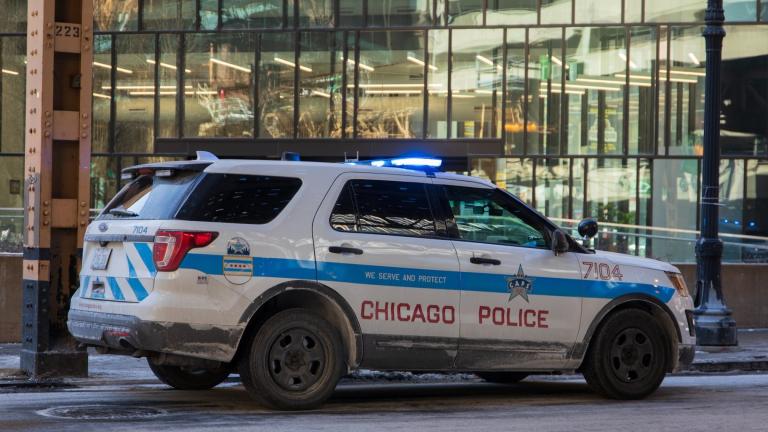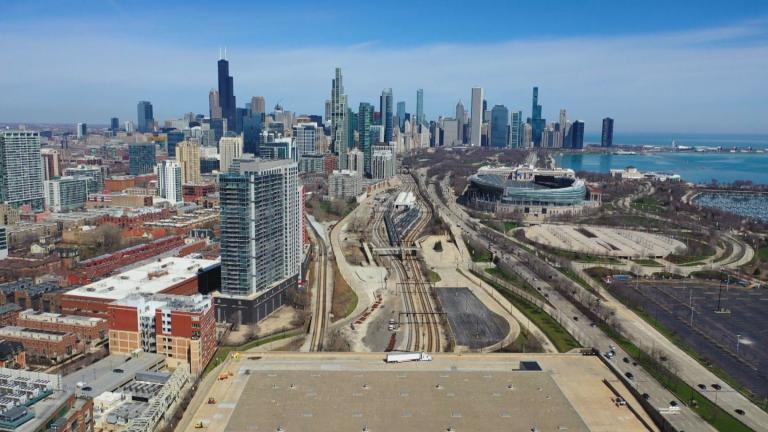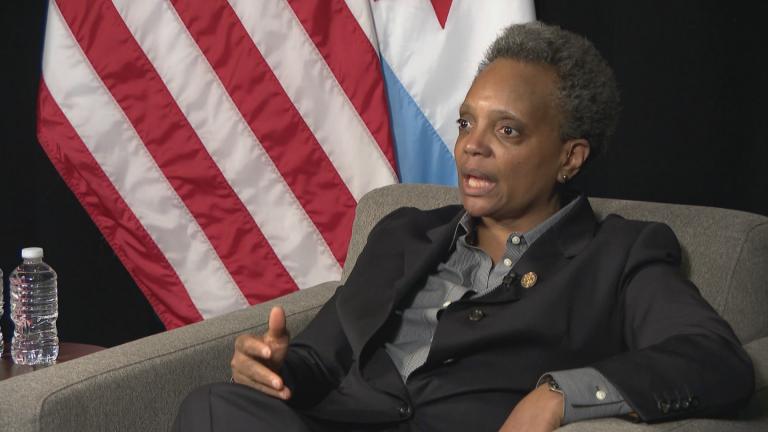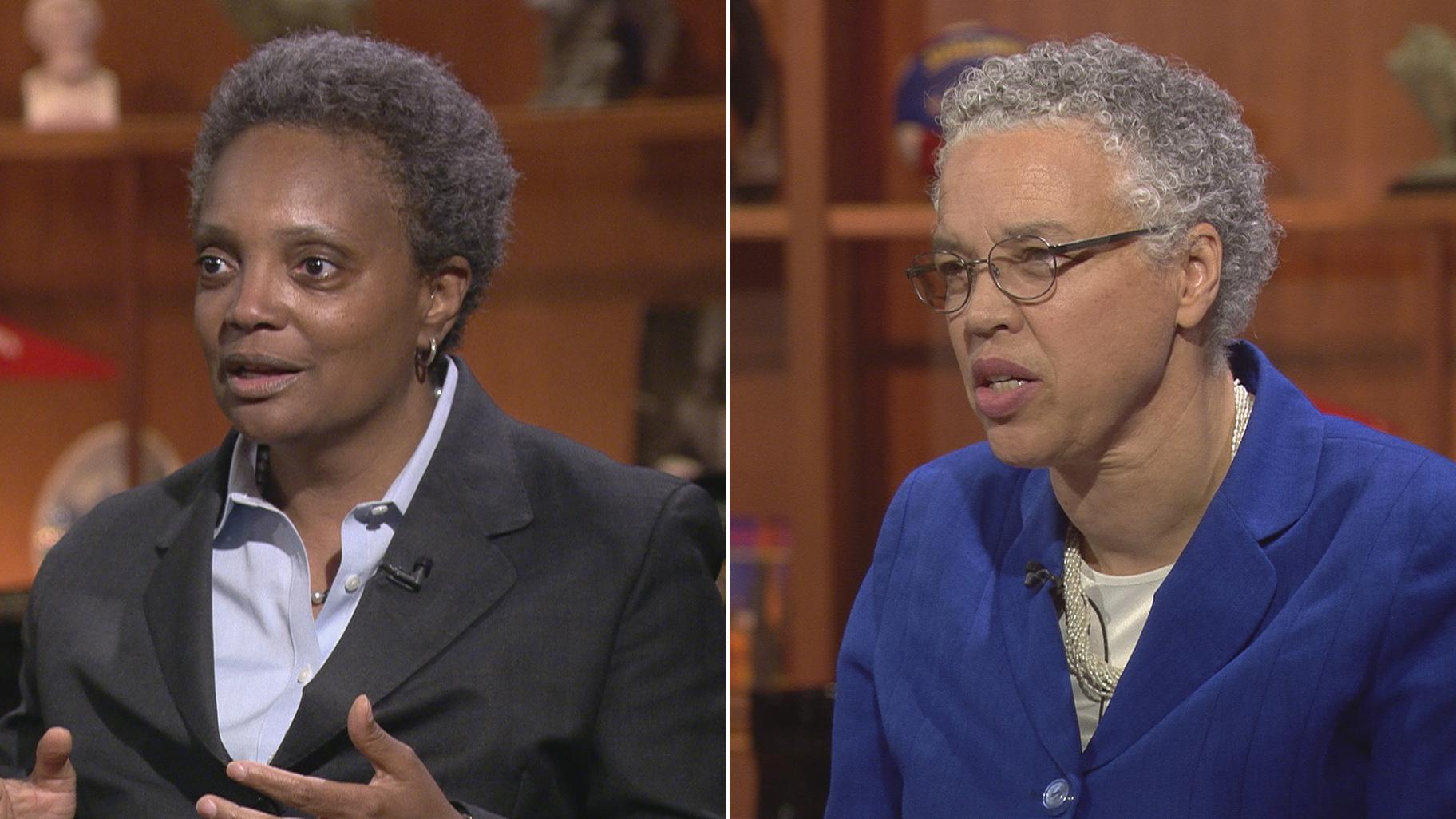 Lori Lightfoot, left, and Toni Preckwinkle appear on “Chicago Tonight” on May 14, 2018 and Oct. 16, 2017, respectively. (WTTW News)
Lori Lightfoot, left, and Toni Preckwinkle appear on “Chicago Tonight” on May 14, 2018 and Oct. 16, 2017, respectively. (WTTW News)
Chicago and Cook County do not have enough doses of the COVID-19 vaccine to expand eligibility to Illinois residents with chronic health conditions and those who are disabled, Mayor Lori Lightfoot and Cook County Board President Toni Preckwinkle said Thursday morning in a rare joint statement.
Gov. J.B. Pritzker announced Wednesday that the state would start vaccinating residents with cancer, chronic kidney disease, chronic obstructive pulmonary disease, diabetes, heart condition, sickle cell disease, pulmonary disease and obesity on Feb. 25.
Chicago and Cook County are still vaccinating those eligible in the first two phases of the vaccination effort: health care workers, residents at long term care facilities and those older than 65, Lightfoot and Preckwinkle said.
“Our goal is to get as many people vaccinated as quickly and efficiently as possible,” Lightfoot and Preckwinkle said. “That said, our greatest challenge in doing so is the very limited supply of vaccine we are receiving.
“At this time we are not being supplied with enough doses that would allow us to expand eligibility,” their statement continued.
Emily Bittner, a spokesperson for the governor, said Pritzker “strongly believes the most medically vulnerable in our state should qualify for vaccination as soon as possible, and that it would be unfair for the medically vulnerable like cancer patients to be denied vaccine in Illinois.”
If federal officials approve the vaccine from Johnson & Johnson in the coming weeks, that would add nearly 100 million more doses to the nation’s vaccine supply.
“Federal guidance already includes this vulnerable group, and the Governor is particularly invested in expanding access because this group includes a disproportionately large share of vulnerable people of color,” Bittner said.
The governor’s action will allow local health departments “the ability to make plans to open up appointments to this group of vulnerable residents,” according to the governor’s office.
If the city and county were to follow the plan laid out by the governor, it would add additional stress to a vaccination effort that has left many scrambling to find an available appointment.
“Doing so in Chicago and Cook County would add well over one million additional people to (the current vaccination eligibility list,) and the result would be that those currently eligible, including seniors, frontline essential workers and those in our most heavily COVID-burdened communities, would have an even harder time getting a vaccine,” Lightfoot and Preckwinkle said.
Chicago Department of Public Health Commissioner Dr. Allison Arwady said Wednesday the city is only getting enough vaccine for 5% to 10% of Chicagoans who are already eligible.
The expansion of eligibility may make sense in other parts of Illinois, where there is ample supply, Arwady said.
Under the city’s vaccine rollout plan, all essential workers as well as Chicagoans age 16 and older with underlying health issues will be eligible to get vaccinated as of March 29, if there is enough supply.
More than 900,000 Chicagoans would be eligible in the next phase of the effort, Arwady said. But the city does not have “anywhere near” enough vaccine to meet that demand, she added.
Chicago is getting approximately 6,000 doses of the vaccine every day, an increase of about 300 doses, Arwady said.
Contact Heather Cherone: @HeatherCherone | (773) 569-1863 | [email protected]

